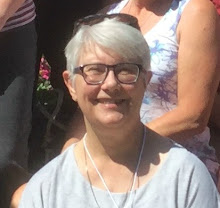My work table gets used for all sorts of things. On this day I was doing some experiments on absorption.
The past few days I have been marking student work.
I have been thinking about the journey of learning a lot - as you do when marking. There is a popular saying right now that says something to the effect that if you want to master a skill you need to spend 10,000 hours practicing it.
Well, first of all, I am pretty sure 10,000 hours is an arbitrary number. Because some students will come to mastery faster than others. What the number does, however, is convey the fact that mastery does not come 'cheaply', certainly not always quickly. That it takes focused study and, at times, determination - especially when things go horribly awry. As they do, when pushing one's boundaries!
Practice without self awareness simply makes 'bad' practice 'permanent'. Of course we can always change what we are doing, but the more we have practiced 'bad' processes, the harder it is to change.
So always, when we are learning, we need to do so with awareness of what it is we are doing, whether or not it is effective, what we need to change in order to do 'better'.
I tell my students that if they walk out of the classroom knowing more than when they walked in, I have succeeded.
So rather than being put off by some arbitrary number, I encourage students of anything to walk forward into new knowledge with the purpose of becoming better than they were before.
None of us knows when our end date is. Some of us will never be able to invest 10,000 hours. Some will invest much more than that. Just know that learning a skill is not an instant gratification kind of an activity. If it was easy, it wouldn't be called mastery.
But most of all, I am grateful for those students who share their journey with me.




2 comments:
The original article about 10000 hours is linked below. It was written by Ericsson in 1993. He makes the point you do: that just going through the motions for 10K hours gets you nowhere. Deliberate practice has to be involved: doing the thing, analyzing what you did well, what you did not as well, making a change, and then doing it again, incorporating the change. It has as much to do with wetware (our brains and nervous systems) as it does with any kind of fast or slow acquisition of expertise. Muscle memory and creativity have very few shortcuts. http://projects.ict.usc.edu/itw/gel/EricssonDeliberatePracticePR93.PDF
Laurie
Thanks for the link. People tend to focus on the number rather than the journey. :)
Post a Comment